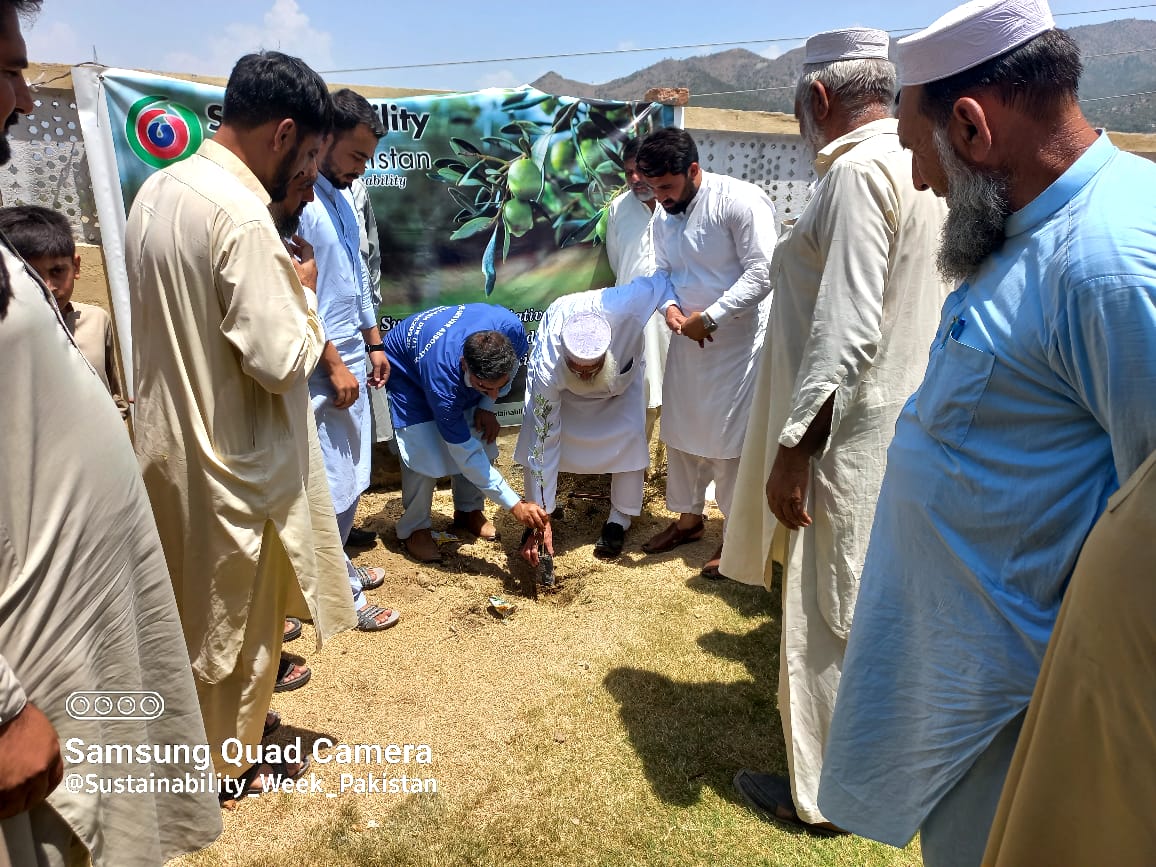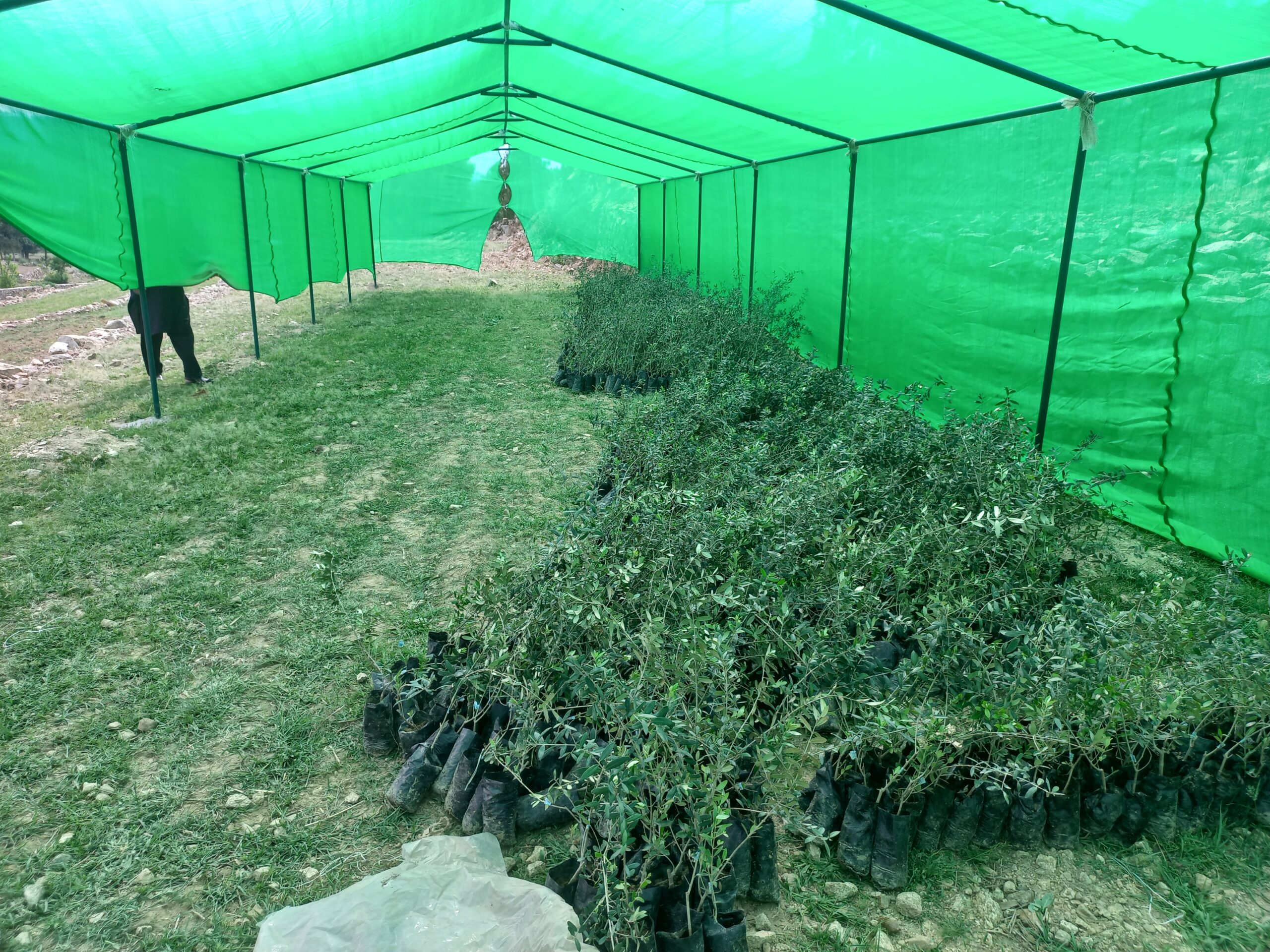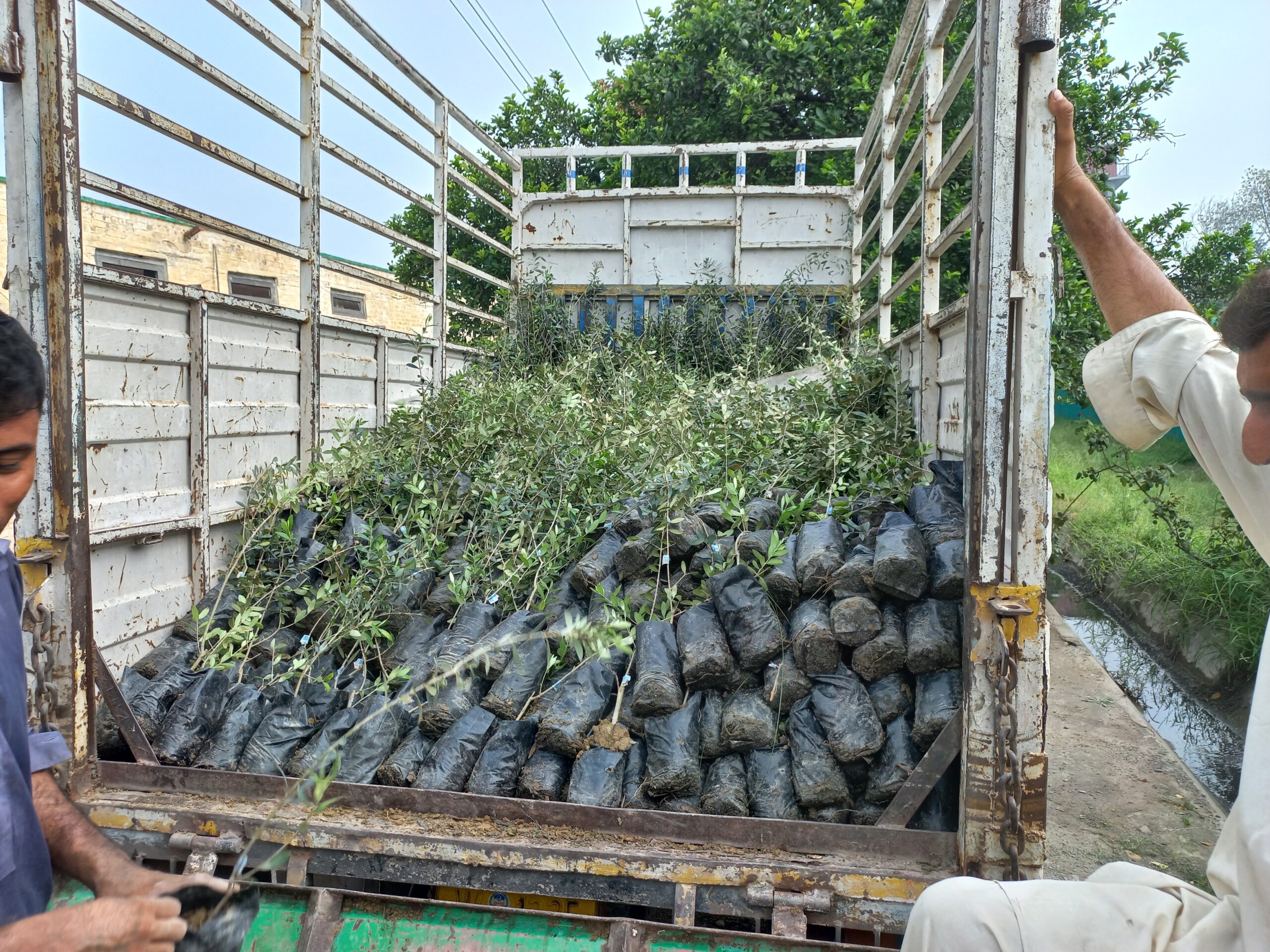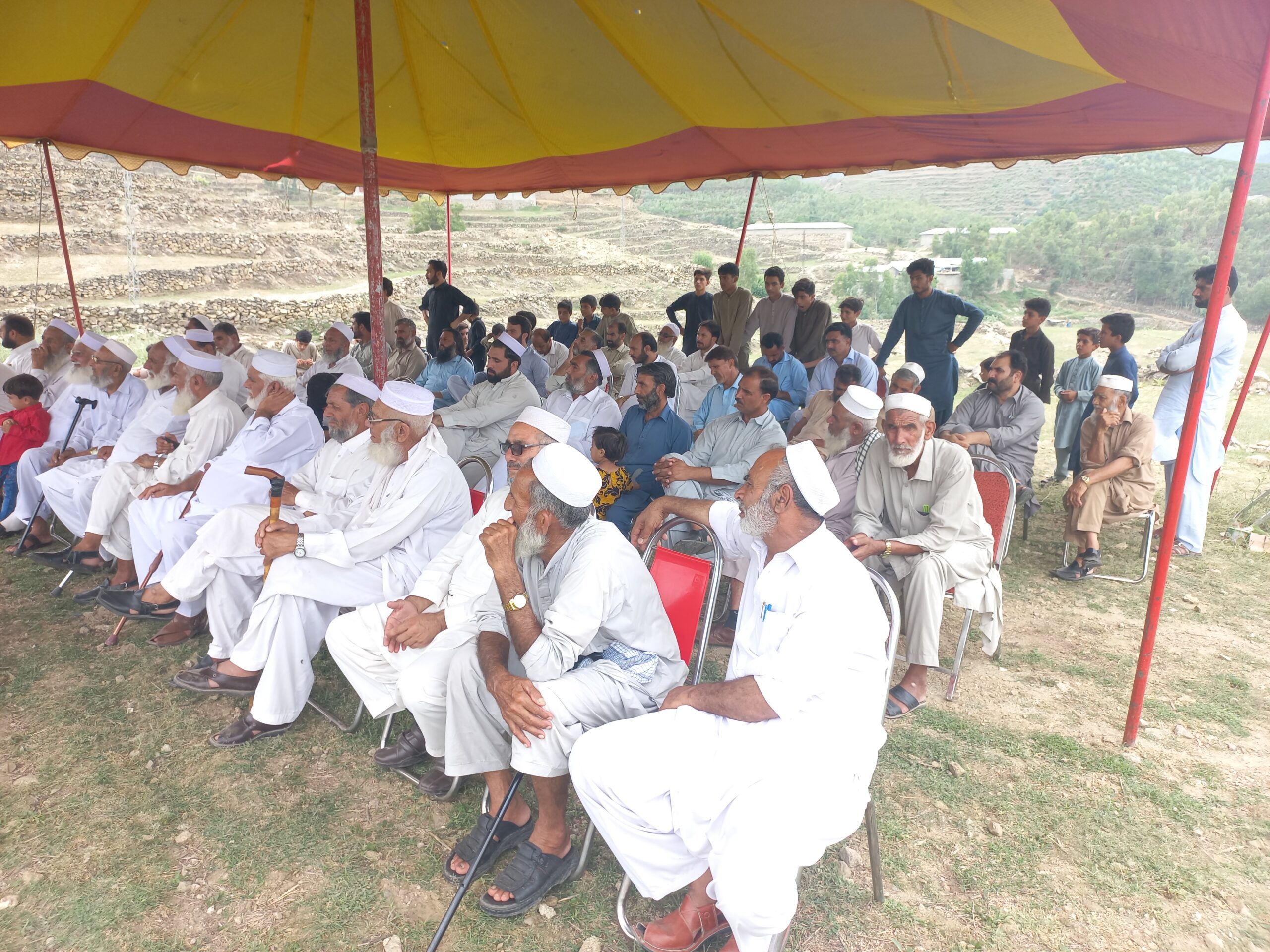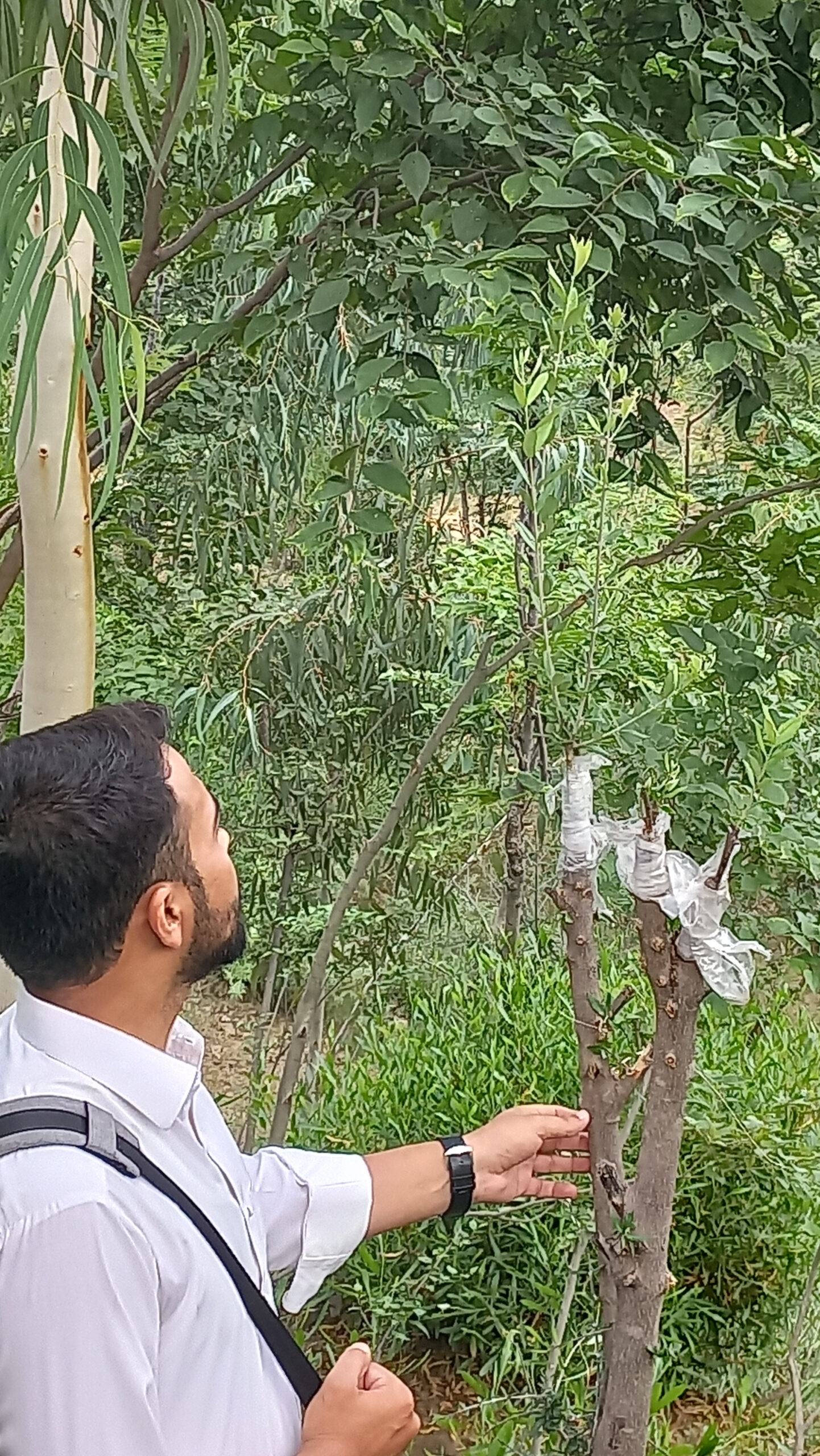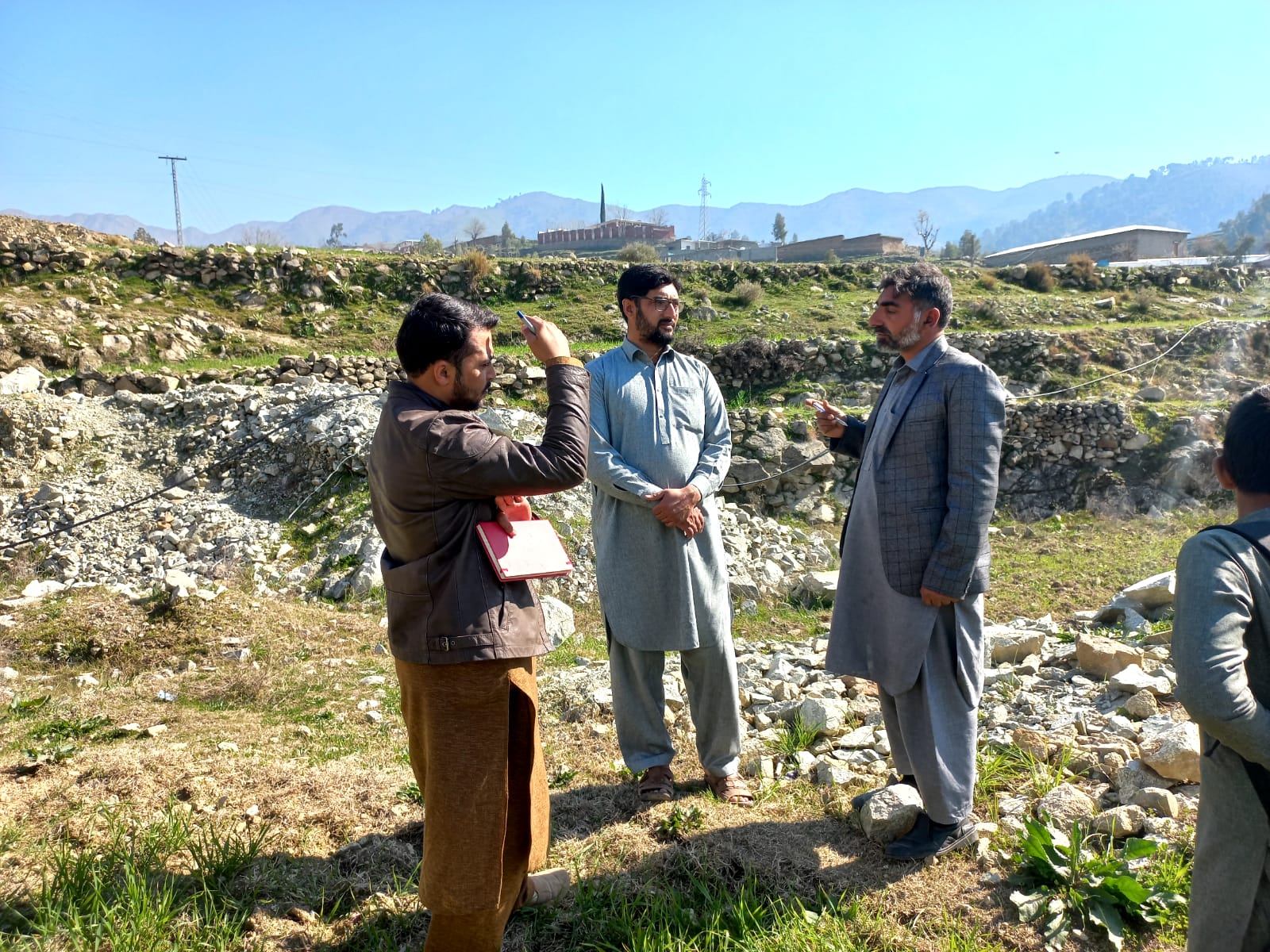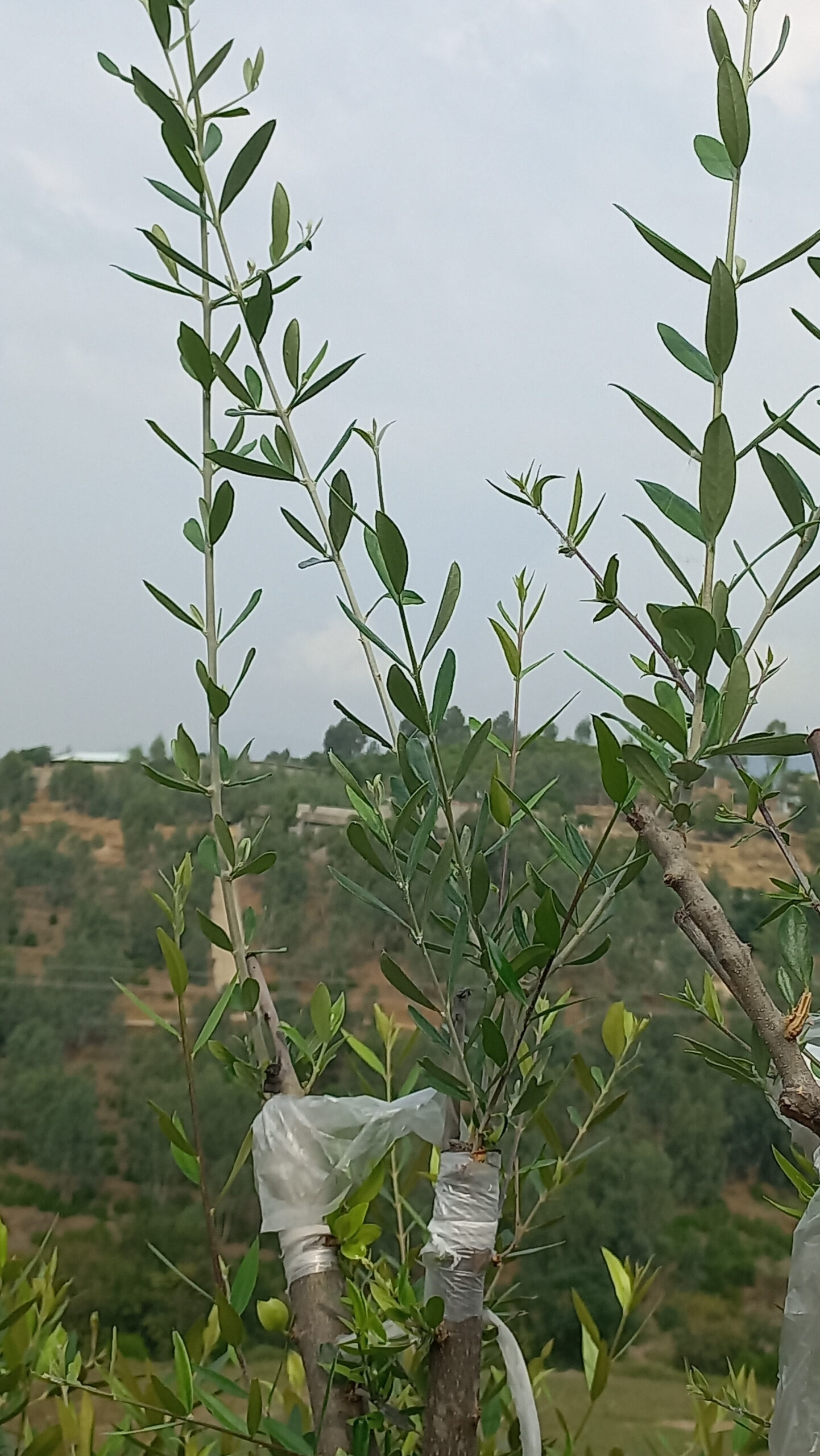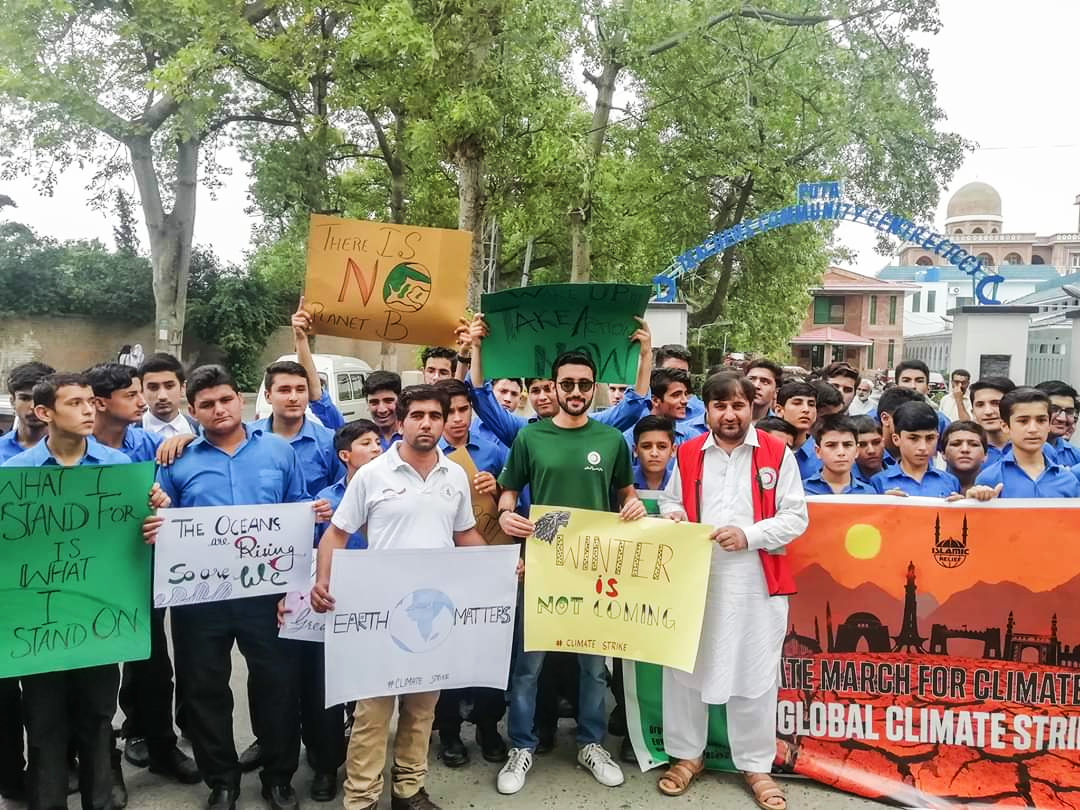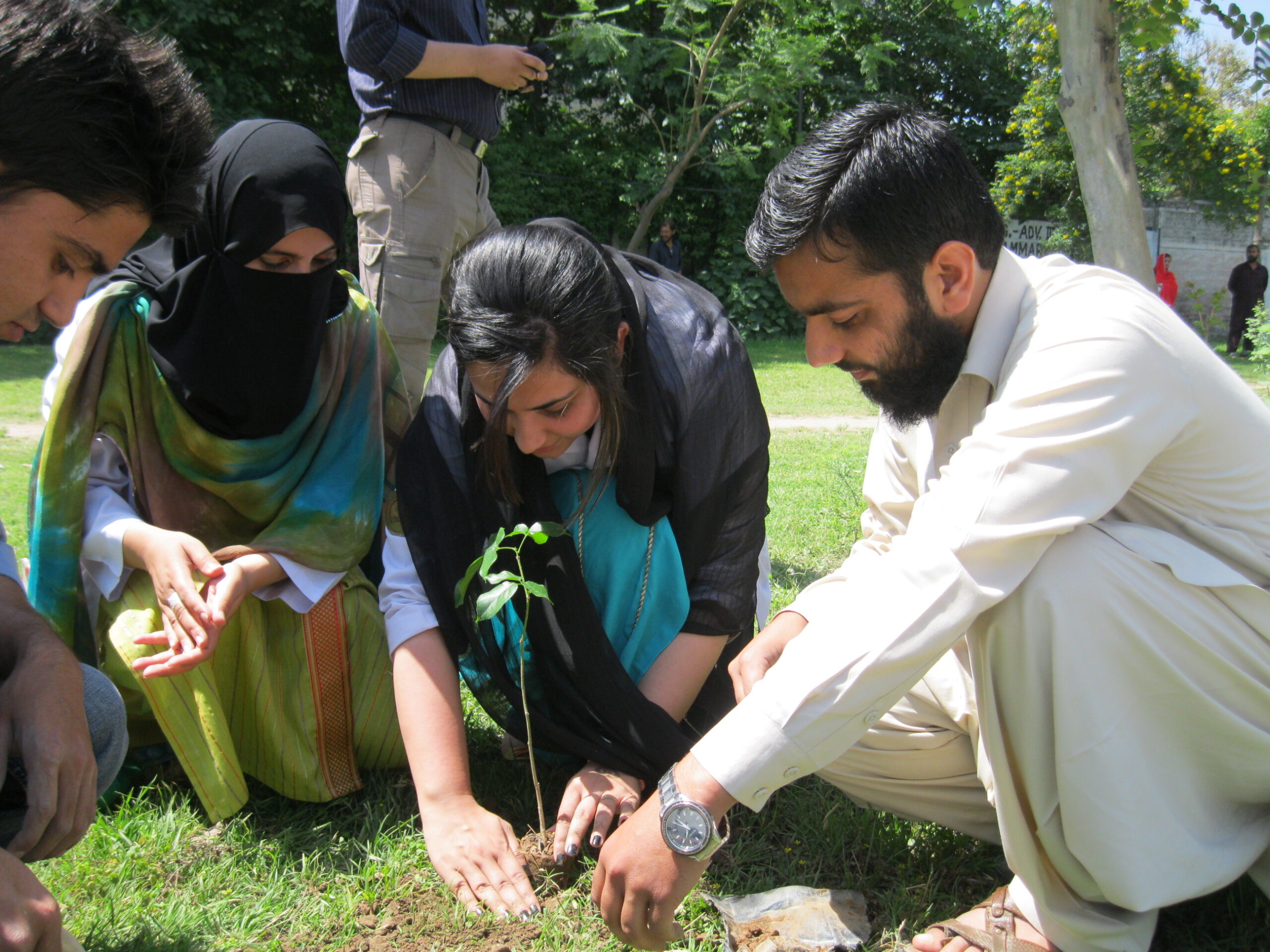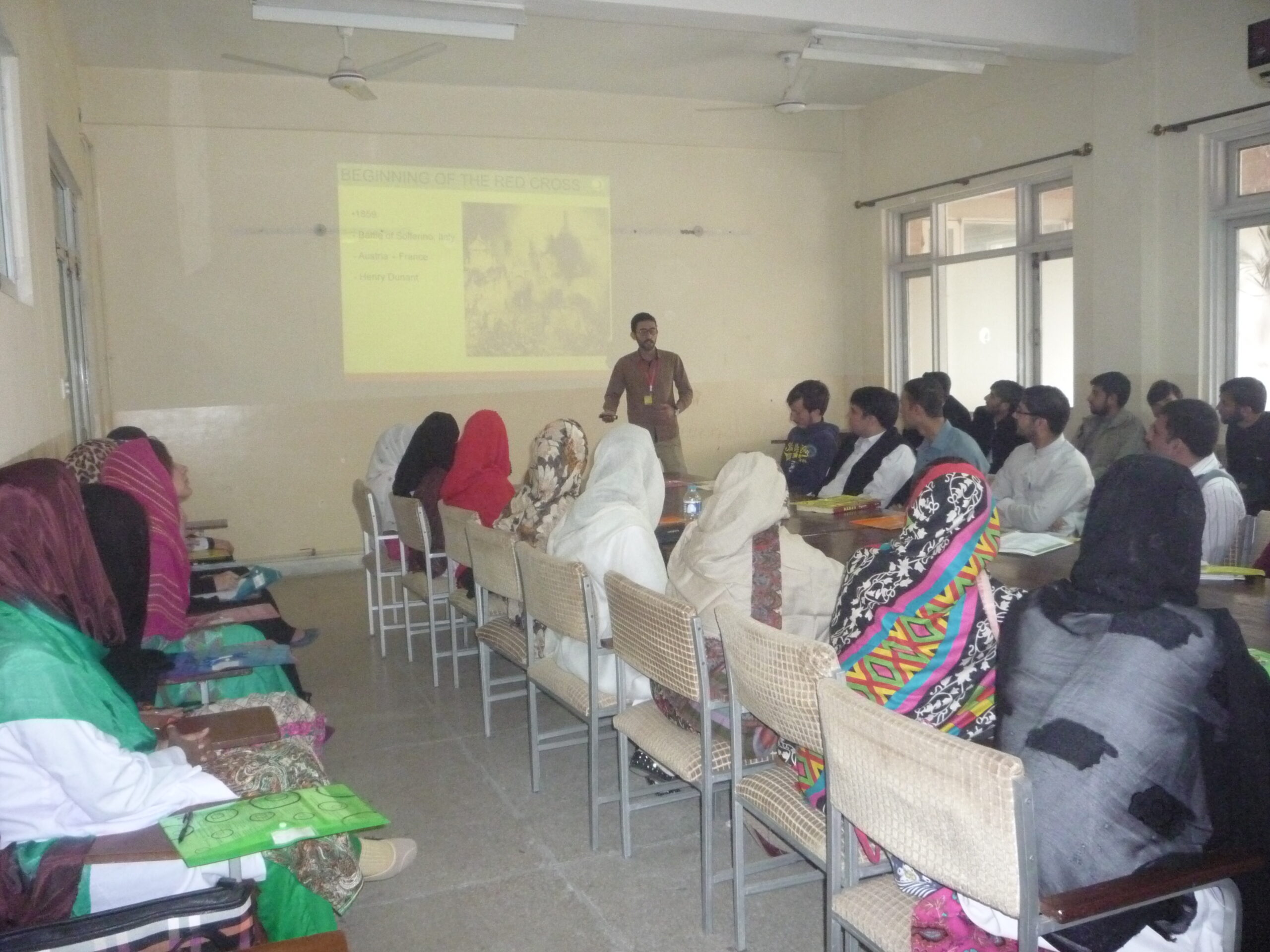Project Summary
Reducing the impact of climate change and promoting the local economy through planting and grafting olive trees in Dherai, Pakistan
Project Manager
Country
Pakistan
Status
completed first phase of 2022/2023
ongoing second phase by 2024
Budget
first phase 5000 €
second phase 20,000 €
Links
Documents
- February 2022 field report
- April 2022 field report
- May 2022 field report
- May 2022 2nd. field report
- June 2022 field report
- Final report of 1st project phase
- June 2023 field report
- July 2023 field report
- August 2023 field report
- March 2024 field report
- March 2024 field report
- May 2924 field report
- June 2024 field report
- June 2024 field report
Partners
Sustainability Week International
Hand in Hand-Fonds
Climate Justice Resilience Fund
Weltladen Hofheim
Project goals
Establishment of 4 nurseries for hybrid olive trees
Planting 5000 hybrid olive plants with young volunteers
Commissioning local experts to graft 12,000 wild olive trees together with the trained farmers/youth
Capacity building and awareness raising training on olive tree planting, grafting of wild olive trees, conservation of olive trees and the role of trees in combating the effects of climate change
Develop a strategy for the local community together with the local forestry authority to establish a local oil extraction unit in the area in the future.
Sustainability Week Pakistan (SWP) is a youth-led non-governmental organization committed to youth empowerment and development. SWP train and equip youth with tools and skills to play their role in climate change adaptation and sustainable development in Pakistan. SWP is striving to support youth and to make them better future leaders. The SWP as a youth-led organization laid down its foundation on well-defined organized sets of principles, which focuses not on just work for youth but working with the youth.
SWP’s vision is to come together for sustainability, we believe in youth’s power and potential to concrete solutions to the most pressing challenges like sustainability and climate change and to build a sustainable society where all youth are safe, resilient & empowered.
Project: Reducing climate change impacts and boosting the local economy through olive trees plantation and grafting.
Each year, Pakistan spends three to four billion dollars on the import of crude edible oils and oilseed. The country is receiving 84 percent of the total consumption of edible oil from abroad. Increased local production of oilseed crops and the improved working of the domestic edible oil refining units can help reduce this huge import bill and the government can save billions of dollars being spent on cooking oil import.
Olive oil production is generally beneficial in all aspects, it is not only good for health but also for the environment. Provisional scientific studies conducted by the International Olive Council (IOC) indicates that a hectare of olive trees cancels out one person’s annual carbon footprint; the production of a liter of olive oil captures 10.64 kg of atmospheric carbon dioxide (CO2), and the world production of olive oil could absorb the emissions of a city of more than 7 million inhabitants such as Hong Kong.
(Source: International Olive Council, 2018)
Almost all districts of the Malakand Division of the Khyber Pakhtunkhwa province of Pakistan have a large number of wild olive trees which, if grafted on the commercial level, can bring about economic revolution besides saving billions of dollars annually for the country. According to the Agriculture Research Institute (ARI) Tarnab’s food technology department, there are 80 million wild olive trees in Malakand Division alone, in which only 18,000 have been turned productive through grafting. They are found in abundance in Dir Lower, Dir Upper, Swat, Shangla, Buner, Malakand Agency, and Bajaur. The huge amount could be saved by converting wild olive trees in the region into productive ones through the technique of grafting. if promoted on a commercial level with oil extracting machinery installed at the local level, olive oil production would not only change the fate of local growers but also would earn billions of foreign exchange for the country.
Although the local community in recent years has developed an interest in grafting and planting olive trees, but overall, the growing or grafting of olive plants in Khyber Pakhtunkhwa, especially in Malakand Division, is yet to get the government attention despite the fact the area is already rich in species and has great potential for growing the plants for oil production. For the extraction of olive oil, there is one oil extraction unit in the periphery district Bajaur and one in Tarnab farm Peshwar which is the capital city of the province Khyber Pakhtunkhwa, however, there is a great potential and need for a local oil extraction unit in the near future. Malakand region is suitable for any kind of farming, but the farmers need technical assistance and local small extraction machine and that farmers can concentrate on the production of olive oil instead of wheat, barley, rice, and fruits.
Our pilot project was conducted in Dherrai village, Union Council Kotigram, District Lower Dir Malakand Division. According to the 2017 census report, the area had a total of 109 households and 1184 inhabitants.
The main focus of the pilot project was not only to uplift the local economy of the local small farmers through diversifying their livelihoods from traditional agriculture crops to the lucrative olive trees but also to protect the local environment, promoting the culture of green jobs and raising the awareness of the importance of greenery among the local population.
The pilot project helped 40 local farmers and youth to learn grafting techniques from experts and to start grafting wild olive trees. The farmers were able to convert their natural wild olive trees through grafting into productive ones and to grow hybrid olive trees for which SWP along with the local forest and agriculture departments would provide technical support. In 2022 alone 3,000 wild olive trees were grafted and the same number of olive trees were planted on 50 farms. A tree nursery was established and three awareness-raising events were organised with a total of 85 participants.
In the second phase of the project, starting in 2024, we aim to scale our achievements by establishing 4 tree nurseries, transplanting at least 5000 seedlings, grafting 12000 wild trees, training over 100 farmers and youth and conducting a scooping study based on extensive consultations with the local administration, the forestry and agricultural authorities and local olive growers to establish oil extraction facilities.
This project’s long-lasting effects include:
• The main beneficiaries are the local communities in the village Dherai. The planted and grafted olive trees from this project will help the local communities to boost their economy and reduce their reliance on traditional agriculture crops. The conservation of the existing olive trees in the region plays an important role not just for environmental purposes but also for local people’s effective livelihood sources. The olive trees which were previously used as wood for fire or furniture now can be used as a source of sustainable green jobs in the region. With the growing awareness about the lucrative and other benefits of these wild olive trees and some very successful projects in other areas of Pakistan, the local community now views them as precious assets. The planted and grafted olive trees will be able to provide fruits after four years that will lead to green jobs in the community. It will ultimately enhance the overall resilience of the local community. The local community owns these wild olive trees. Moreover, all the project activities will be carried out in close coordination and communication with the local forest and agriculture department which already oversees these forests.
• Awareness regarding the conservation of existing olive trees and forest in District Lower Dir Malakand Division.
• Technical knowledge regarding grafting and planting of hybrid olive trees in the region. The ties between the local small farmers with the local agriculture department will be further enhanced.
• This project is expected to increase the capacities of the people of the village that can lead to a behavioral change that can influence other people in the region to start grafting the wild olive trees. Thus the villages will become good partners with the forestry and agriculture department in the future concerning olive trees plantation, grafting, and protection.
• It will lead to increased knowledge on climate change impacts and flood risk reduction in the communities and how to best use the local resources for the local economy to boost. This will contribute to sustainable forest management and will raise awareness among the people for the existing and potential green jobs in the regions.
The olive is not just a symbol of peace. It is a factor for the economy and a durable service provider that can withstand severe climatic conditions, while at the same time it serves humanity as a good carbon sink. The promotion of olive cultivation can reduce the intensity and frequency of flooding in the region by stabilising soils and steep slopes in the rugged region selected for the project.



